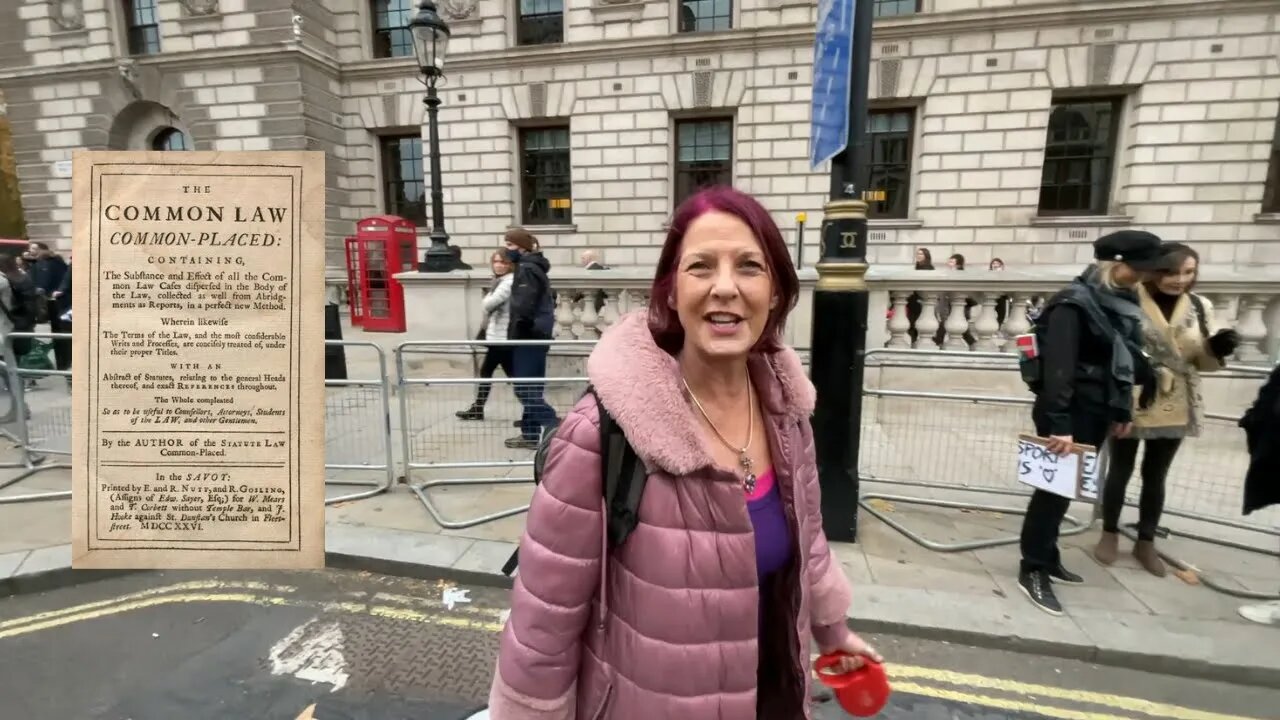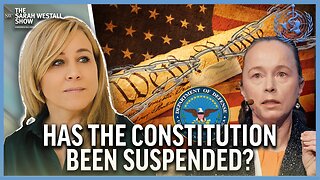Premium Only Content

Anna de Buisseret on UK Common Law, London (20.11.21)
Anna de Buisseret provides a brief description into UK Common law
Thanks for watching .If you'd like to show your support , please like and share, and feel free to leave
your comments.
https://www.legislation.gov.uk/aep/Edw1cc1929/25/9
Please consider supporting WTF is Going On by making a donation
buymeacoffee.com/WTFisGoingOn
BTC Bitcoin: 3PyYkdXjD48Bqy4qj3yDJQo4UunQUnoeku
DOGE Dogecoin: DFv3fgCtEhHJJEdcz48ZLwN4AqvreCMNK8
ETH Ethereum TRC20 Only: TBB4reNYbPM1NZ3HXyGwVnCCez7VfaNLnq
You can follow us also on:
WTF is Going On: Telegram Channel
https://t.me/WTFisGoingOnOfficial
Subscribe to the WTF is Going On odysee
https://odysee.com/@WTFisGoingOn:bb
WTF is Going On: Telegram Channel
https://t.me/WTFisGoingOnOfficial
Strawman The Nature of the Cage (A documentary About Common Law)
https://youtu.be/KG5_MJVcQnI
Common Law in England
Common law is distinguished from other forms of judge-made law from parallel court systems. In medieval times, for example, common-law courts were secular, as contrasted with the ecclesiastical courts of the Roman Catholic church. Common-law courts did not deal with merchant law, which was administered in mercantile courts, or with maritime law, administered in the admiralty court.
The most important parallel system was equity jurisdiction. Equity originated in early English law when subjects petitioned the monarch for justice. Such petitions were delegated to the lord chancellor and later to a tribunal called the court of chancery. Equity grew into a special body of rules over and above those administered in other royal courts of law. At first, common-law courts were more bound by precedent than were courts of equity, which provided remedies based on notions of fairness to litigants who were denied relief on technical grounds under common law.
By the end of the medieval period, common law and equity constituted the vast bulk of all English law. As common law became less formal and as equity accumulated its own set of precedents, these two forms of judge-made law grew closer together. Britain abolished the distinction between common law and equity in the Judicature Act of 1873. The ultimate effect of the growth and absorption of equity jurisdiction was to gradually expand the range of disputes that could be adjudicated in formal courts.
During and after the Industrial Revolution, in response to the growing complexity of law and the need for greater clarity and accessibility, the British Parliament asserted itself as the principal source of new law, modifying and adding to the body of judge-made law by statute. In modern times, the statutes of Parliament have come to encompass most legal relationships. The common law, however, remains in force to help interpret statutes, many of which are primarily restatements of common-law rules and principles.
-
 14:39
14:39
WTF is Going On
1 year ago12 YEAR OLD JASMINE DESTROYS THE 15 MINUTE CITY
116 -
 1:23:44
1:23:44
Space Ice
14 hours agoSpace Ice & Redeye: Van Damme's The Quest: Pirates, Clowns, James Bond & Bloodsport
52.4K3 -
 59:57
59:57
The StoneZONE with Roger Stone
12 hours agoJ6 Martyr Enrique Tarrio Describes Inhumane Prison Conditions Ordered by Biden | The StoneZONE
50.6K4 -
 16:48
16:48
Tundra Tactical
12 hours ago $11.42 earnedAffordable Medical Gear From ACETAC SHOT Show 2025
98.3K5 -
 1:46:16
1:46:16
Redacted News
15 hours agoRFK CONFIRMATION: Kennedy goes to WAR with Big Pharma Democrats in Fiery Hearing | Redacted Live
273K443 -
 57:31
57:31
Candace Show Podcast
15 hours agoBREAKING! Taylor Swift Turns Against Blake Lively & Ryan Reynolds | Candace Ep 141
247K180 -
 1:04:59
1:04:59
Sarah Westall
12 hours agoRFK Jr Report, Constitution Suspended, War Time Procedures in Place, WHO Exit, DOD w/ Sasha Latypova
85.1K50 -
 1:56:37
1:56:37
Melonie Mac
16 hours agoGo Boom Live Ep 35!
72.3K16 -
 1:01:13
1:01:13
LFA TV
19 hours agoPRESIDENT TRUMP SIGNS LAKEN RILEY ACT | BASED AMERICA 1.29.25 6pm
76.4K8 -
 1:43:07
1:43:07
2 MIKES LIVE
13 hours ago2 MIKES LIVE #172 News Breakdown Wednesday!
42K2